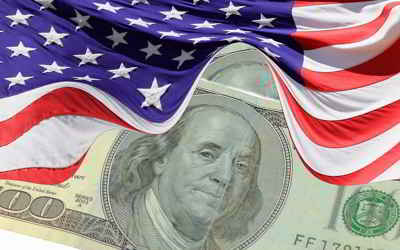Michigan Economy
Agriculture and Industry in Michigan
Michigan economy is a set of human and social activities and institutions related to the production, distribution, exchange and consumption of agriculture and industry goods and services. The balance between Michigan various economic sectors differs largely between various regions and other states in the US.Michigan Agriculture and Industry
Michigan's real gross state product in 2012 was estimated to be $348,867 which was $161,427 and 86% higher than the national state average, $187,440. Michigan has the 13th highest GSP out of the 50 states.
Michigan became the birthplace of the automobile industry in 1899 when Ransom Olds started the Olds Motor Works in Detroit. By 1903, Henry Ford had established the Ford Motor Company in Dearborn. Soon Detroit became known as the automobile capital of the world. The manufacture of automobiles is still Michigan's chief industry. Other manufactured products include metal products, chemicals, food products and non-electric machinery.
Michigan leads the nation in the production of cherries, which are grown in the state's "fruit belt" along the shores of Lake Michigan. Fields of corn and grain cover much of the southern counties of the Lower Peninsula. Dairy farming is the most lucrative agricultural business in the state.
The tourism industry is very important to the economy of Michigan. Abundant fish in lakes and streams, as well as bear, deer, and other game animals make the Upper Peninsula a rich hunting and fishing region. Scenic woodlands attract many campers while thousands of lakes, rivers, and streams draw swimmers, water skiers, and boaters to the state.
Michigan Agriculture:
Dairy products, apples, blueberries, cattle, vegetables, hogs, corn, nursery stock, soybeans.
Michigan Industry:
Motor vehicles and parts, machinery, fabricated metal
products, food processing, chemical products, mining, tourism.
Michigan is primarily known as the birthplace of the automobile industry. However, it is also home to a thriving tourist industry, with destinations
such as Traverse City, Mackinac Island, Saugatuck and the entire Upper Peninsula drawing vacationers, hunters, and nature enthusiasts from across the
United States and Canada. Although it has an urban image to non-visitors, Michigan is actually 50 percent forested, much of it quite remote. Both the
forests and thousands of miles of beaches are top attractions. Tourists also flock to many of the museums, particularly those in the Detroit area.
Hunting is a major component of Michigan's economy. Michigan ranks first in the nation in licensed hunters (over one million) who contribute $2 billion
annually to its economy. Over three-quarters of a million hunters participate in white-tailed deer season alone. Some K-12 school districts in rural
areas of Michigan go so far as to cancel school on the opening day of rifle season, due to safety and attendance concerns.
Michigan's Department of Natural Resources manages the largest dedicated state forest system in the nation. The forest products industry and recreational
users contribute $12 billion and 200,000 associated jobs annually to the state's economy. Michigan has more than 90 native species of trees, more than
all of Europe combined.
The Bureau of Economic Analysis estimates that Michigan's total state product in 2003 was $359 billion. Per capital personal income in 2003 was $31,178,
the twentieth in the nation.
Major industries/products include automobiles (General Motors, Ford, Daimler-Chrysler), Amway, cereal (Kellogg's), copper, furniture (Steelcase, Herman
Miller, Haworth), and iron.

US economy is relies on private decision-making ("economic freedom")




